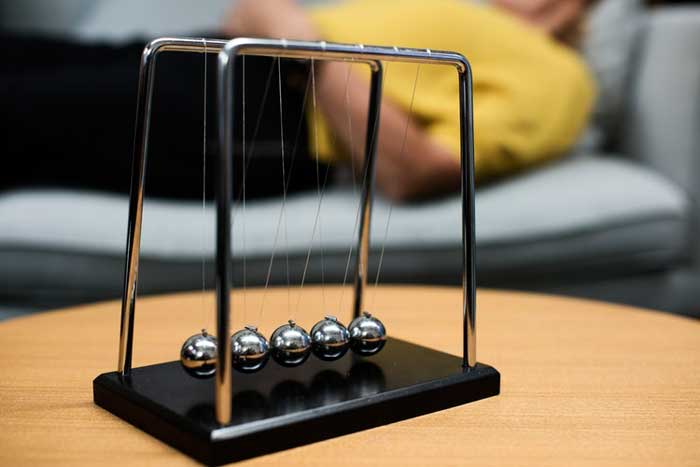It is very difficult to feel the moment when healthy excitement from accomplishing professional tasks is mixed with constant dissatisfaction and a sense of guilt for idle pastime. The euphoria from a successful project or a productive day is quickly replaced by anxiety. Life outside the workplace seems to be secondary and chaotic and is accompanied by the rush and a nervous desire to get back to business as soon as possible.
 Workaholism is a problem not only because this condition is difficult to recognize. Unlike other addictions – alcohol, drugs, gambling – the craving for work is encouraged by society, so few people decide to fight it.
Workaholism is a problem not only because this condition is difficult to recognize. Unlike other addictions – alcohol, drugs, gambling – the craving for work is encouraged by society, so few people decide to fight it.
It’s hard to stop exhausting yourself when you are constantly reminded of the cult of success and productivity. None of us dream of dying from a heart attack in front of the computer at the age of 30 years and few people think that this prospect is real.
If you feel that it is difficult for you to completely disengage from professional tasks, wherever you are, you feel guilty for not being interested in work in your spare time, this is one of the first signs of workaholism. Here are some tips to help you control your craving for work.
1. Admit the problem
Work gradually removes all other spheres of life. In order to get rid of addiction, a conscious effort will be required. The first thing you have to do is to admit the problems with your career. It is easy to justify working extra hours in the office: “the boss asked me”, “I want to put more effort into this project,” “I cannot refuse.” It is necessary to develop the habit of recognizing that this is not the norm, and such things should be an exception rather than a rule.
2. Find a hobby

People usually get obsessed with work when they do not expect anything from their domestic environment, except dinner and bed. Find interests outside the office, and you will have the reason to end the workday on time. It may seem that your work saves you from boredom or that it is more useful than ordinary entertainment. The truth is that constant immersion in the process exhausts and can lead to emotional burnout. Try yoga, running, embroidering, or drawing!
3. Do not abandon social plans because of work
You have canceled an evening out with friends or a trip to your parents many times because of work. During a busy week, it seems that you should not have time for personal life. The truth is that the better you learn to switch and rest, the better you will work. Try not to abandon your social plans because of work. It is better to postpone the meeting for half an hour than to have it next week.
4. Find what will help you cope with anxiety
The problem of a workaholic is not that he does not take a day off, but that it is difficult for him not to be tormented by remorse when he has nothing to do. A person literally does not know how to rest, so it does not matter how many days of vacation he will have. Try to find something calm for weekends. For someone, this is cleaning the house, reading a book, watching a good movie, meeting with friends – any of these occupations is as important and useful as a career. Try not to think that you waste time outside the work.

5. Restrain your maximalism
A workaholic is almost always inclined to perfectionism. Yet, you need to spend much time and effort before you do everything perfectly. And no one else except you seems to care. You cannot work seven days a week at the maximum of your abilities. Restrain your perfectionist inclinations and do not wait for the moment when you feel completely satisfied with yourself.
6. Start the day with something pleasant
We’ve already given you 6 reasons to get up at six in the morning. If you’re a workaholic, you can add one more to them. The correct start of your day will help to distribute the tasks properly, reduce anxiety and recall once again that there is life outside the office. Try to do something pleasant from the very morning rather than fill this time only with work.
7. Turn to a psychotherapist

At the heart of any addiction, there are deeper problems that a person wants to replace with work, food or alcohol. Being busy on a permanent basis allows you not to think that you have no family or to avoid conflicts in the family. An obsession with career suggests serious complexes and insecurity. Only an experienced specialist can help you understand the true reason for addiction, so do not hesitate to contact a psychotherapist. There is no disease that is called “workaholic”, but there are real problems that lead to this condition.










